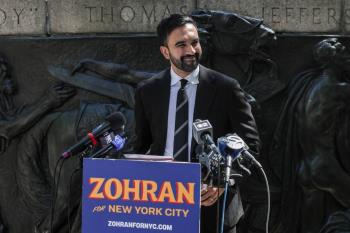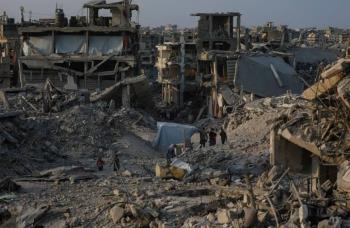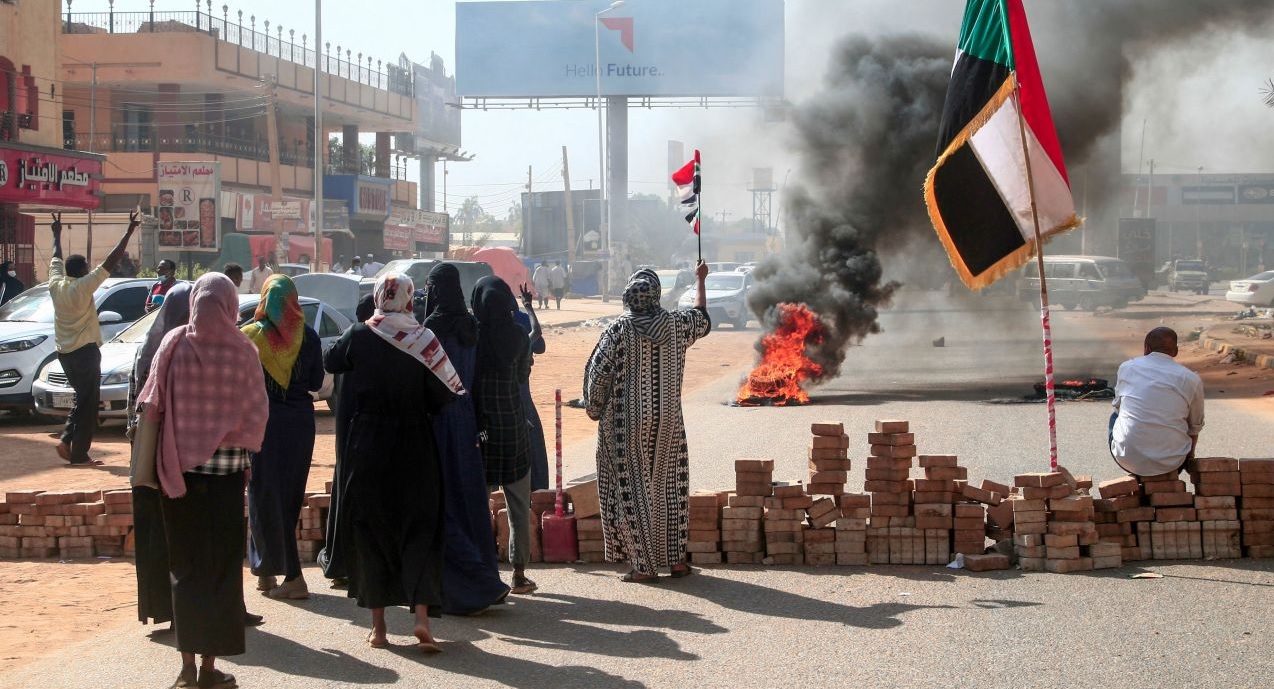Alwaght- After two and a half years of civil war, the fall of Al-Fashir as the capital city of Darfur region of Sudan to the Rapid Response Forces (RSF) after 18 months of blockade marks a turning point in the country's violent developments. Now, the RSF rebels have full control over the whole of Darfur, giving rise to the the risk of practical partition of the country.
The civil war, between the army forces commanded by General Abdul Fattah al-Burhan and the RSF led by Mohamad Hamdan Dagalo, has seriously endangered the very existence and unity of this North African country. With the fall of Al-Fashir, the violence in Darfur has flared up, with reports suggesting home by home killings, sexual abuse and violence, and intentional starvation, leading to thousands fleeing their homes.
Sudan now grapples with the world’s largest humanitarian crisis, with close to 30 million people in need of aid. The conflict has displaced more than 12 million, claimed at least 150,000 lives, brought aid convoys to a halt, and left hospitals in ruins. Rebel forces are weaponizing food. Beyond the staggering human toll, the war is set to impose a heavy security and humanitarian burden on key regional actors, including neighboring countries facing a surge of refugees.
Among the foreign actors involved, the UAE has long been secretly backing the RSF rebels, supplying weapons, financing, and logistical support. A peace deal, outlined in the Quad Initiative statement presented by the US, Egypt, the UAE, and Saudi Arabia on September 12, 2025, remains on the table, but neither side in Sudan’s civil war has accepted it. Meanwhile, developments on the ground suggest the conflict is far from over.
Sudan war overshadowing neighbors
The civil war in Sudan has caused the biggest displacement crisis in the works, taking its toll also on the neighbors. According to the UN report, 30 million Sudanese, about half of the total population, are in need of aid. Additionally, over 20 million face food insecurity and famine is announced in several parts of Sudan.
The war has forcibly displaced at least 12 million people, driving over 4 million to seek refuge across Sudan's borders. This exodus has placed immense strain on neighboring nations, with Chad, Egypt, South Sudan, Libya, Ethiopia, and the Central African Republic bearing the brunt of the crisis. South Sudan, which split from Sudan in 2011, alone has received more than 800,000 displaced civilians.
This massive influx is overwhelming countries already grappling with their own pre-existing challenges. In border regions like those in Chad and South Sudan, limited resources, crumbling infrastructure, economic instability, and public health crises are creating dire conditions for both refugees and local communities. Analysts warn this human pressure will trigger significant economic and political repercussions across the region.
The conflict is also destabilizing Chad, which was already struggling to cope with over one million displaced people in its eastern provinces. The spillover effects are fueling a rise in prices, a surge in crime by gangs and militias, and the intensification of ethnic tensions. This raises the alarming prospect of sectarian conflict erupting between Arab and non-Arab populations, not only within Sudan but throughout the surrounding region and other countries.
Dagalo's advances and shadow of Sudan split
Lucia Ragazi, a research fellow in the Africa Program at ISPI, believes that Al-Fashir is the last stronghold of the Sudan's army in Darfur and its fall is significant symbolically for Dagalo as the leader of rebels and will cement his claims of rule over Darfur. According to the analyst, the fall of Darfur increases the risk of Sudan's fragmentation, even though neither General al-Burhan nor the RSF's Dagalo appears to desire an actual breakup. Both sides remain convinced they can achieve an outright military victory across the entire nation, despite the Sudanese army's tactical retreat from Al-Fashir .
Echoing concerns over the peace process, Sarah De Simone, a professor at the University of Toronto, stressed that any roadmap for Sudan will fail without addressing the plight of its citizens.
"General al-Burhan's roadmap, presented to the UN in March, calls for an inyer-Sudanese dialogue inside the country," De Simone noted. "Yet, civilian leaders still face arrest warrants, have their bank accounts frozen, and are denied passports within Sudan."
She further says that a genuine peace will only be possible when the political leaders and peace activists currently restricted by the military are allowed back into the political arena. The Canadian expert concludes that the roots of Sudan's crisis lie in the suppression of peace activists and the military's monopolization of power.
UAE's push to gain influence through Sudan's gold
On the other hand, Emirates interference in Sudan has complicated the situation in this country, signaling the economic lever and geopolitical ambitions of the UAE and Sudan. Control over Sudan's gold is the main driver of Abu Dhabi’s interference. The Persian Gulf country is seeking to maintain its place as the global hub for gold bar. This explains why a majority of Sudanese gold mines are held by the UAE-backed RSF. Also, strategically, influence in Sudan will solidify the place of the Emirates in the Red Sea corridor, allowing it to project power and compete with such actors as Turkey and Iran and form a security order for its interests in Africa. Its backing to the RSF is provided through Chad, something having divided the ruling elites in Chad. Now the supporters and opponents of the UAE in Chad are standing against each other.
Egypt's worry
Egypt has long viewed Sudan's conflict with alarm, backing the Sudanese armed forces and General Abdel Fattah al-Burhan as the legitimate government. Now, the fall of Al-Fashir to the rebels has placed Cairo in a difficult strategic bind. RSF commander Dagalo has upended the balance of power by seizing control of Darfur and Kordofan. In February 2025, he announced a parallel government committed to fighting until the fall of the capital, Khartoum, signaling his ambition to control all of Sudan, or at least over the potential secession of its western and southern regions. This will not only rattle Cairo about its own strategic vulnerabilities, but also threaten its territorial integrity.
Additionally, the civil war in Sudan has caused a humanism crisis, displacing millions of Sudanese to Egypt. This comes while Egypt itself is struggling with economic and social challenges and cannot absorb influx of civilians from Sudan.
New equations forming in Horn of Africa
Imad Harb, an expert at the Washington DC-based Arab Center, warns that the RSF's seizure of Al-Fashir will effectively partition Sudan, triggering further conflict across the Horn of Africa and the Red Sea region.
Harb outlines several potential consequences:
1. Escalating Regional War: The conflict could spill over Sudan's borders, potentially sparking a new war between regional rivals Ethiopia and Eritrea.
2. Fueling Secessionist Movements: The fragmentation of Sudan could empower other breakaway regions, such as Somaliland, and intensify calls for autonomy in areas like Ethiopia's Tigray and southern Yemen.
3. Deepening Humanitarian Catastrophe: The ongoing war will likely force even more civilians to flee their homes, exacerbating the world's largest displacement crisis.
This critical situation in Sudan and its spread to neighboring countries and Horn of Africa will practically sink the region in a new round of tensions and conflicts.



























